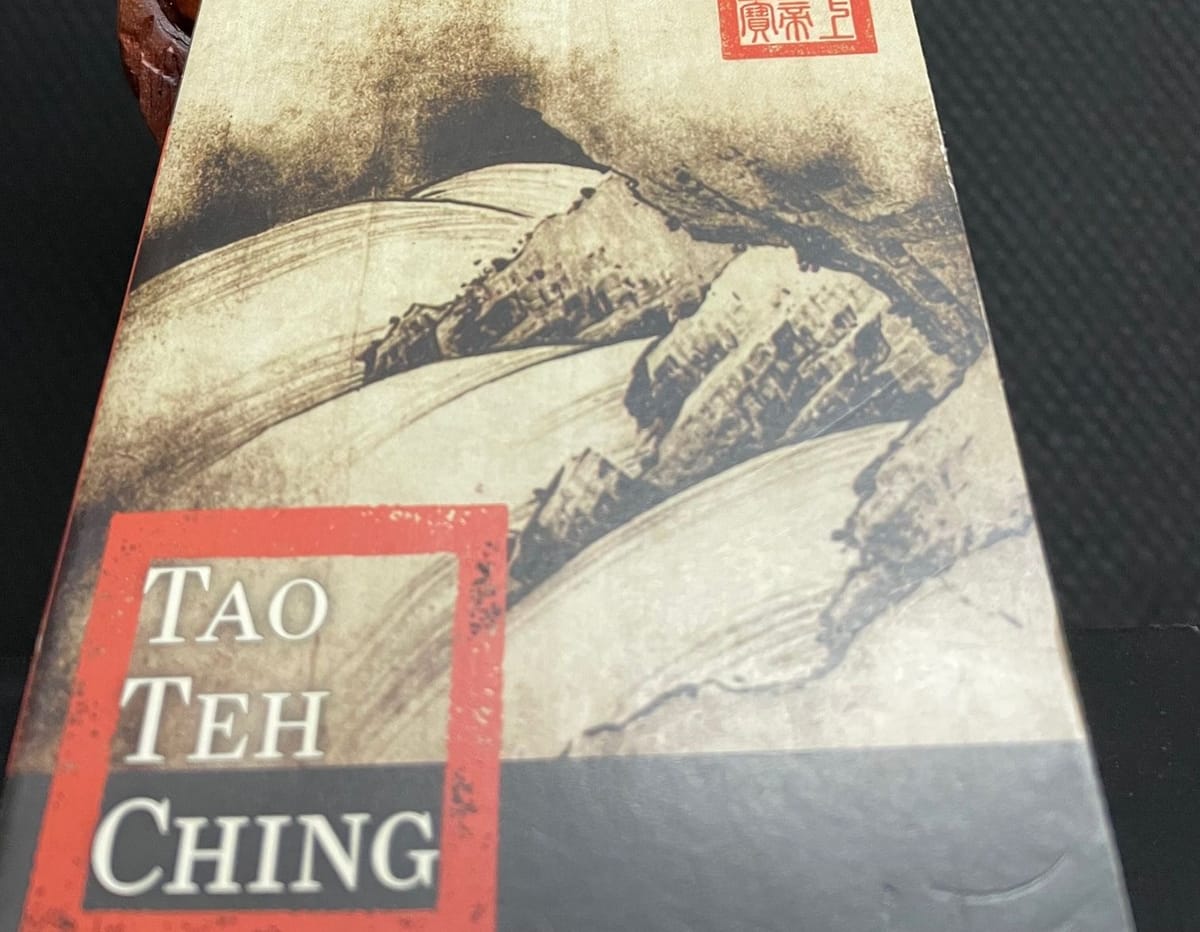In Praise and Condemnation of Dogma
Tao Teh Ching, Chapter 2

Homo economicus: The economic man.
That's us. We set goals and pursue them. Life is activity. Activities presume goals.
Even the goal of pursuing no goal is a goal.
It's not wrong, anymore than a plant is wrong to produce a flower.
It's also not wrong that we pursue those goals economically: efficiently.
I could spend 15 minutes weeding a small plot by hand, or I could grab my (most excellent) diamond hoe and hack it down in three minutes, leaving the debris to decompose into the soil, thereby reducing the need to add compost later.
The diamond hoe is an "extension" of my hands, to use Marshall McLuhan's framework, allowing me to reduce the workload.
We all take efficiencies. Using tools, taking shortcuts. Whatever it takes to get through a day in this challenging valley of tears, leaving us with energy and resources for the next day of tears.
It's not wrong, anymore than a tiger is wrong to tackle the slowest bison in the herd.
Most tools, like my diamond hoe, are obvious.
Other tools aren't. They're so prevalent, we don't notice them anymore than we notice air or a cognitive fish would notice water.
Perhaps the most prevalent and unnoticed tools are concepts and their cousins that carry them from the mind to the external world, words.
When a concept comes into the room, truth goes out the window. Ortega y Gasset (not an exact quote)
Iain McGilchrist often refers to the "limit case." The limit case is a temporary construct used to address a situation.
A limit case is a tool we use to deal with parts of reality. The tool isn't good for grasping the big picture, but it allows us to deal with the matter in front of us.
Concepts and language are limit case tools. They allow us to get a sufficient grasp of truth to proceed through life, even though they don't give us a grasp of truth. Our mind forms concepts to give us a mental arena where we can operate, then language articulates those concepts as part of the operation.
When all the world recognizes beauty, this in itself is ugliness.
When all the world recognizes good as good, this in itself is evil. . .
Difficult and easy complement each other.
Long and short exhibit each other.
High and low set measure to each other. Tao Teh Ching, Chp. 2.
Jacques Derrida made himself a household name in the 1960s/1970s by pointing out what Lao Tse pointed out in those words above.
Words are limited. They are, Derrida noted, just empty poles within a system of binaries. Each pole in the binary defines its opposite. The system of binary poles is our language.
The left hemisphere is the culprit that takes those systems of binaries to the next level and turns them into dogmas that can be preached, exhorted upon others, and implemented through government emergency orders and legislation.
The right hemisphere chuckles and shakes its half of the head at such efforts.
[T]he Sage manages his affairs without ado,
And spreads his teachings without talking. . . .
He does his work but sets no store by it.
He accomplishes his task but does not dwell upon it.
Language is primarily a left hemisphere function. It's a tool that lets the left hemisphere do its things: grasping, accomplishing, succeeding. Language attains outsized importance to the left hemisphere, hence the left hemisphere's tendency to think the words and the concepts they implement are truths: dogmas, imperatives, or scientific facts.
To the right hemisphere, language is hopelessly limited. If we didn't have a concept of beauty, we would have no concept of ugliness. If no concept of good, we'd have no concept of bad.
There would be beauty, ugly, good, and bad.
We just wouldn't be trying to grasp and control them through language and concepts, like the left hemisphere wants to do.
Instead, we would flow with them. Instead of growing frustrated that we can't grab the water, we'd enjoy its evasiveness.
That's what the right hemisphere intuits and respects:
All is flowing and changing, provisional, and complexly interconnected with everything else. Nothing is ever static, detached from our awareness of it, or disembodied; and everything needs to be understood in context, where, if it is not to be denatured, it must remain implicit [beyond articulation, not explicit]. The Matter with Things, p. 31



